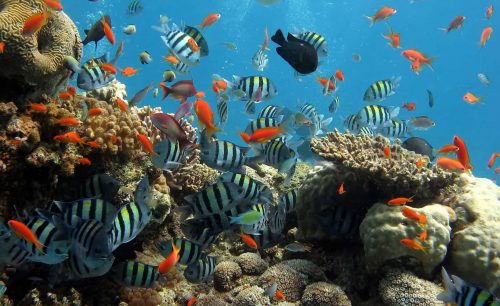Sunscreen Bans Due to Environmental Impact on Coral Reefs
World renowned health-food blogger publishes controversial article about the environmental and health impacts of using traditional chemical-laden sunscreens and what to use instead.

March 30, 2019 / / —
Regina Braun, CEO and founder of Leelalicious.com – a popular health-food recipe blog – recently published a controversial blog post talking about the risks and dangers of using most of the traditional sunscreens found in stores across the world.
Braun, according to her February 7, 2019 post entitled “Best Mineral Sunscreens?” says it’s high time we demand sunscreen manufacturers to make people’s health and environmental concerns a greater priority than quick profits. She insists the use of toxic sunscreens is not only harming people who put it on, but also coral reefs, sea turtles, and other sea life that it comes in contact with.
“There are massive campaigns underway to clean up our oceans. So far the focus has been to remove massive amounts of plastic that is gathering and forming islands in our oceans. It’s a fantastic mission that I 100% support, but I believe it’s just a start.” says Braun.
Braun goes on to say that many of the chemicals we – perhaps unknowingly – dump into the ocean are just as much of a concern for her. “Approximately 6000 tons of sunscreen gets put into our oceans every single year. Almost all of it is in areas where we have the most beautiful coral reefs and ocean life. People put on sunscreen before plunging into the ocean to explore nature’s beauty and – unbeknownst to them – the sunscreen washes off their bodies and stays in the water.”
According to Braun, many of the chemicals found in sunscreen – specifically oxybenzone and octinoxate – are not only hurting coral reefs but also the ocean life surrounding it. “The Haereticus Environmental Laboratory – a US based non-profit scientific organization – found we have polluted parts of the ocean so bad that we are now finding an alarming level of oxybenzone toxicity in marine life like sea turtle eggs, the fish we eat, shrimp, oysters and clams. How bad is that?”
Braun cited another study where urine samples of people who had applied toxic sunscreens just hours earlier, showed to contain 1% of the applied dose. “This is pretty significant” Braun continued. “The chemicals we put on our skin – be it sunscreen, lotion, makeup, or anything else for that matter – eventually get absorbed into our bodies. And there have been separate studies done that show just how disruptive these chemicals can be to our hormone system.”
“So not only are we – essentially – poisoning our bodies by applying this stuff on our skin, we are also indirectly consuming these chemicals by eating contaminated things like fish, oysters, or – my favorite – shrimp. There is no escaping it anymore. So the sooner we can stop using oxybenzone, octinoxate, and many of the other harmful chemicals found in our beauty and skin care products, the better!” said Braun.
When asked what she thought about places like Hawaii, Key West (Florida), and the island of Palau banning the sale of certain sunscreens due to the potentially harmful chemicals found in them, Braun insisted it’s a good thing. “The ban in most places won’t go into effect until 2021, which is still a long time away and should give sunscreen manufacturers plenty of time to come up with more environmentally friendly ingredients.”
“We already have terrific products on the market that do not have octinoxate or oxybenzone as their base chemical. One of which I talk extensively about in the post you referenced. So, contrary to what many of these big companies now tell us, environmental groups are not telling us to stop using sunscreen, lotions, or beauty products. They are simply saying we need to be mindful of the ones we do use.”
According to Braun, Europeans have for a long time had safer products because they demanded them, and insists there is no reason the rest of the world isn’t demanding better as well. “The products already exist. So it’s not like we’re asking companies to reinvent the wheel. We’re simply asking them to do better than the bare minimum they have gotten away with until now. It’s high time!”
To read more about Braun’s take on sunscreens, check out her controversial post here: https://leelalicious.com/best-mineral-sunscreen-beautycounter-sunscreen-review/
Contact Info:
Name: CEO: Regina Braun
Organization: Leelalicious
Phone: +1 928 444-8514
Website: https://leelalicious.com/
Source URL: https://marketersmedia.com/sunscreen-bans-due-to-environmental-impact-on-coral-reefs/497015
Source:
Release ID: 497015